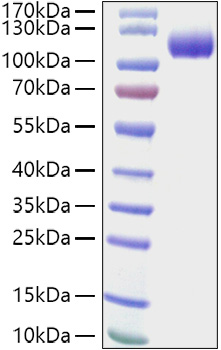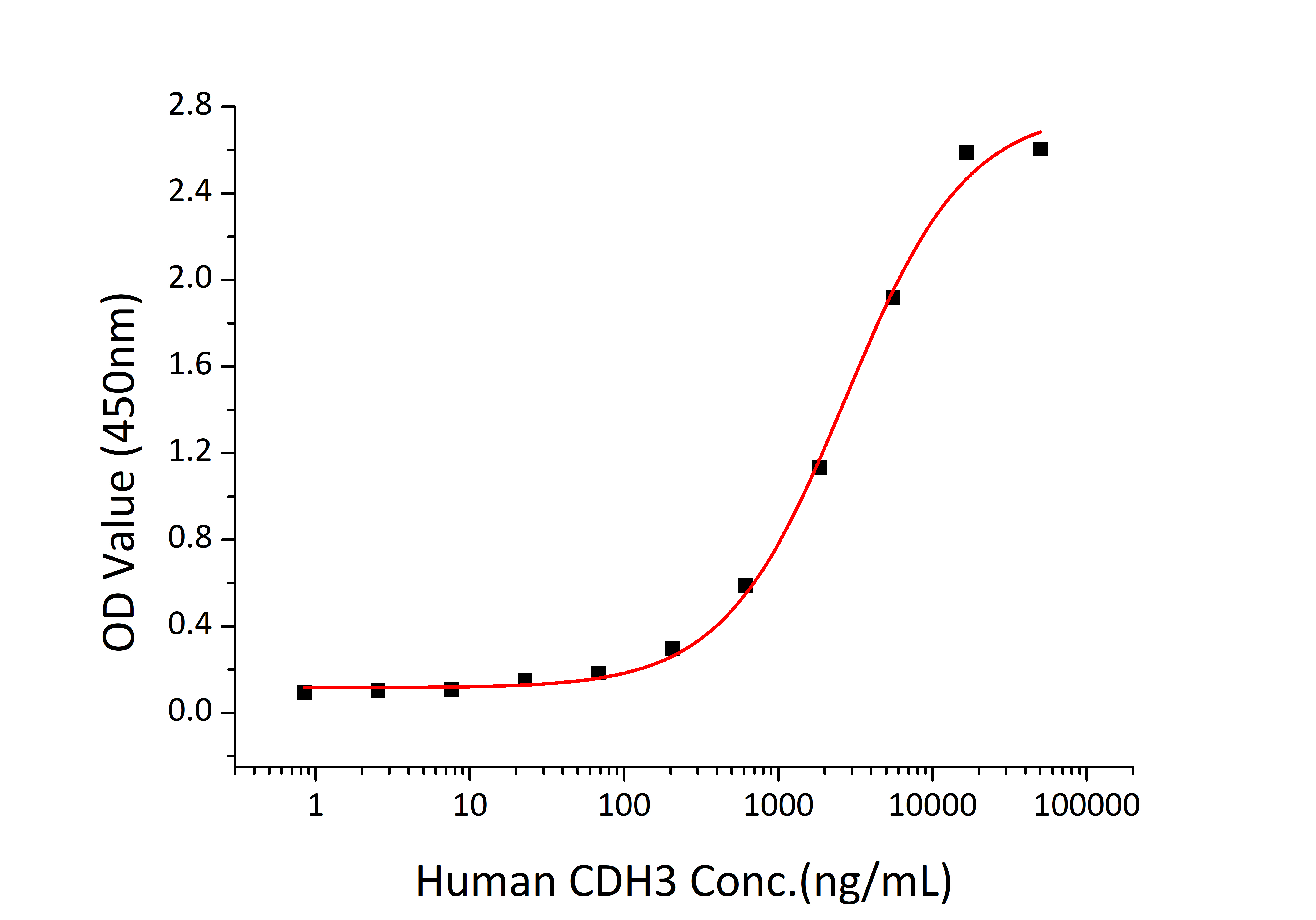Description
Recombinant Human CDCP1/gp140/CD318 Protein
The Recombinant Human CDCP1/gp140/CD318 Protein is a biologically active recombinant protein that plays a significant role in various cellular processes and signaling pathways in human biology. This protein is widely employed in immunological research, cell biology studies, protein-protein interaction analyses, and therapeutic development, providing researchers with a reliable tool for investigating CDCP1/gp140/CD318 function and its implications in health and disease.
This product (SKU: RPCB1563) is produced using HEK293 cells and features a C-His tag for convenient detection and purification. The protein exhibits a calculated molecular weight of 72.57 kDa with an observed molecular weight of 100-120 kDa under denaturing conditions, achieving ≥ 95 % as determined by SDS-PAGE.. Functional bioactivity has been validated through rigorous quality control assays, confirming its suitability for demanding research applications.
Key Features
| High Purity by Affinity Chromatography | |
| Mammalian & Bacterial Expression Systems | |
| High lot-to-lot consistency via strict QC |
| Product Name: | Recombinant Human CDCP1/gp140/CD318 Protein |
| SKU: | RPCB1563 |
| Size: | 10 μg , 20 μg , 50 μg , 100 μg |
| Reactivity: | Human |
| Synonyms: | CD318, TRASK, SIMA135, CDCP1, SIMA135, TRASK |
| Tag: | C-His |
| Expression Host: | HEK293 cells |
| Calculated MW: | 72.57 kDa |
| Observed MW: | 100-120 kDa |
| Gene ID: | 64866 |
| Protein Description: | High quality, high purity and low endotoxin recombinant Recombinant Human CDCP1/gp140/CD318 Protein (RPCB1563), tested reactivity in HEK293 cells and has been validated in SDS-PAGE.100% guaranteed. |
| Endotoxin: | < 0.1 EU/μg of the protein by LAL method. |
| Purity: | ≥ 95 % as determined by SDS-PAGE. |
| Formulation: | Lyophilized from a 0.22 μm filtered solution of PBS, pH 7.4. |
| Bio-Activity: | Measured by its binding ability in a functional ELISA. Immobilized Human CDCP1 (Catalog #RPCB1563) at 1 μg/mL (100 μL/well) can bind Human CDH3 (Catalog #RPCB1064) with a linear range of 0.2-2.72 μg/mL. |
| Reconstitution: | Centrifuge the vial before opening. Reconstitute to a concentration of 0.1-0.5 mg/mL in sterile distilled water. Avoid vortex or vigorously pipetting the protein. For long term storage, it is recommended to add a carrier protein or stablizer (e.g. 0.1% BSA, 5% HSA, 10% FBS or 5% Trehalose), and aliquot the reconstituted protein solution to minimize free-thaw cycles. |
| Storage: | Store at -20℃.Store the lyophilized protein at -20℃ to -80 ℃ up to 1 year from the date of receipt. After reconstitution, the protein solution is stable at -20℃ for 3 months, at 2-8℃ for up to 1 week. |
CDCP1 contains three extracellular CUB domains. It is a putative stem cell marker that is highly expressed in some human cancer cells and both, typical and atypical (cancerous) colons. It interacts with CDH2/N-cadherin, CDH3/P-cadherin, SDC1/syndecan-1, SDC4/syndecan-4 and the serine protease ST14/MT-SP1. It also interacts with SRC and PRKCG/protein kinase C gamma. CDCP1 is taken as a key regulator of EGF/EGFR-induced cell migration. It has been shown that signaling via EGF/EGFR induces migration of ovarian cancer Caov3 and OVCA420 cells with concomitant up-regulation of CDCP1 mRNA and protein. Consistent with a role in cell migration CDCP1 relocates from cell-cell junctions to punctate structures on filopodia after activation of EGFR. It may be involved in cell adhesion and cell matrix association. It also may play a role in the regulation of anchorage versus migration or proliferation versus differentiation via its phosphorylation. It has been taken as a novel marker for leukemia diagnosis and immature hematopoietic stem cell subsets.








